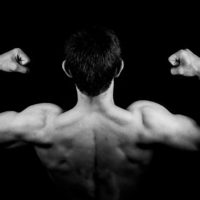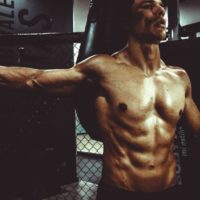Genes & Bodybuilding, Part 1
How does your DNA affect your performance as a bodybuilder?
Your own DNA is definitely a big factor when it comes to determining your natural performance and the results that you’re going to get with specific exercises. Of course, we can’t do anything about your own genes.
What we can do is work with your genes so you can still maximize your results.
Personally, I have seen budding bodybuilders who simply have to “smell” a few dumbbells to enhance the shape and mass of their biceps and triceps. But at the end of the day, their bodies would only allow their chest muscles to develop to a certain degree.
If they wanted more mass and more distinct striations on their chests, they needed to exert two times or three times more effort. On the flip side, there are bodybuilders who barely exert effort to make their chests bigger but no matter how hard they worked, they can only manage small gains to make their hips flare out properly.
What can you do about natural weaknesses?
Every bodybuilder has his own distinct weaknesses. Once you’ve identified your current limitations, it’s up to you to train hard so you can forge and hammer these weaknesses into strengths.
It’s always possible to enhance your performance regardless of your natural weaknesses. You can be certain that even 8-time Mr. Olympia Ronnie Coleman has his own secret weaknesses that he’s been able to overcome through many years of rigorous training and targeted nutrition.
Does ethnicity/race play a role in determining a bodybuilder’s success?
The plain answer to this question is no, race or ethnicity doesn’t really have an impact on a bodybuilder’s ability to reach milestones and accomplish specific goals. It appears that in the end, hard work will always be superior to genetics. That’s why Mr. Olympia would always be composed of a variety of professional bodybuilders with different ethnicities.
There are reigning superstars in every industry and it’s understandable why many Mr. Olympias tend to win the same competitions again and again. They work hard, harder perhaps than the others and their hard work pays off and is naturally enhanced by what their DNA can provide them.
Think of your DNA as a secret box of bodybuilding riches. At every point in your evolution as a bodybuilder, your DNA will provide you with a different “natural boost” that gives you an edge over other athletes. Of course, this natural boost can only take you so far. You still need to take this boost and develop it scientifically and rigorously over a period of years.
Who/what is a “natural boy”?
Some bodybuilders like Lee Priest are called the “natural boys” in bodybuilding because they were able to gain massive guns and impressive physiques even before they rolled into their twenties.
Lee Priest is not very active nowadays in the Mr. Olympia scene and he as fewer professional endorsements because of his unorthodox ways but muscle magazines still consider him a highly respectable bodybuilder because of his commitment to training and the raw results that are just impressive up and down.
What does bone size have to do with muscle mass?
Technically speaking, our muscles can only grow to a certain point even with the use of supplements and hormones. After a certain point you would have to be very diligent about developing certain muscle groups because they seem to have stopped gaining mass, even if you’re still working out like crazy and you’re spending more cash and time on your bodybuilding efforts.
To keep things realistic and to keep your expectations reasonable, note that if you’re a big boned individual you will most likely gain more muscle mass than a person who is five inches shorter or has a smaller wrist size.
Height and bone size are important determinants of future muscle growth.
If you happen to come across references about bone size and muscle growth, note that many of these lists are actually for adult bodybuilders. So if you’re younger than 20 years old, these lists don’t apply to you because you’re still growing up.
Young bodybuilders (some as young as 15 years old) are becoming more and more common and as long as these youngsters stay safe while working out, there shouldn’t be any problems.
However, it should still be taken into account that teenagers are still not physically mature and if the bodybuilding is not performed properly the risk of injury increases, too.


